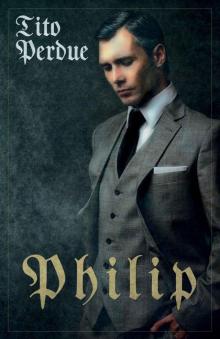Read Philip Storyline:
A genius who has learned the hard way to hide his light under a bushel in postmodern New York City, Philip is a young protagonist with a soul from a bygone era. Slowly revealing himself in the stream-of-consciousness narrative to be a superb Classicist and a lover of his people despite themselves, Philip retains his public persona of ladies’ man and affably laid-back colleague for as long as he humanly can, no doubt as much out of old-fashioned courtesy and consideration as to keep the trauma of the Untergang des Abendlandes from messily breaking surface in his own inner dramaturgy.Catalyzed, with a certain inevitability, by a contemporary corporate policy initiative with which a man of his caliber simply cannot pretend to make do, Philip takes leave of the last vestiges of materialism in his life, save his tailoring, and stoically and awkwardly strikes out into the discombobulating jungle of the space that was once America. Concentrating on an ever-narrowing circle of his own kind, among whom he seeks still to champion manful virtue and female honor in the understated ancestral manner, Philip simplifies and refines himself in mind until he reaches a singularity of sorts.
**Review“In this novel, Perdue, a metaphysical writer, implicitly presents a practical question: One wonders how many Philips there are in enemy-occupied White North America; meaning those who know what we know but show little or no outward indication of it.” — Guest writer, AltRight.comAbout the Author
Tito Perdue was born in 1938 in Chile, the son of an electrical engineer from Alabama who was working there at the time. The family returned to Alabama in 1941, where Tito graduated from the Indian Springs School, a private academy near Birmingham, in 1956. He then attended Antioch College in Ohio for a year, before being expelled for cohabitating with a female student, Judy Clark. In 1957, they were married, and remain so today. He graduated from the University of Texas in 1961, and spent some time working in New York City, an experience which garnered him his life-long hatred of urban life. After holding positions at various university libraries, Tito has devoted himself full-time to writing since 1983. His first novel, 1991's Lee, received favorable reviews in The New York Times, The Los Angeles Reader and The New England Review of Books. His other novels have been praised in Chronicles: A Magazine of American Culture, The Quarterly Review and The Occidental Observer. Arktos has published his novel Morning Crafts, the first in a series of his novels to be published by us, and William's House (vol. 1, 2, 3, 4).
Pages of Philip :
